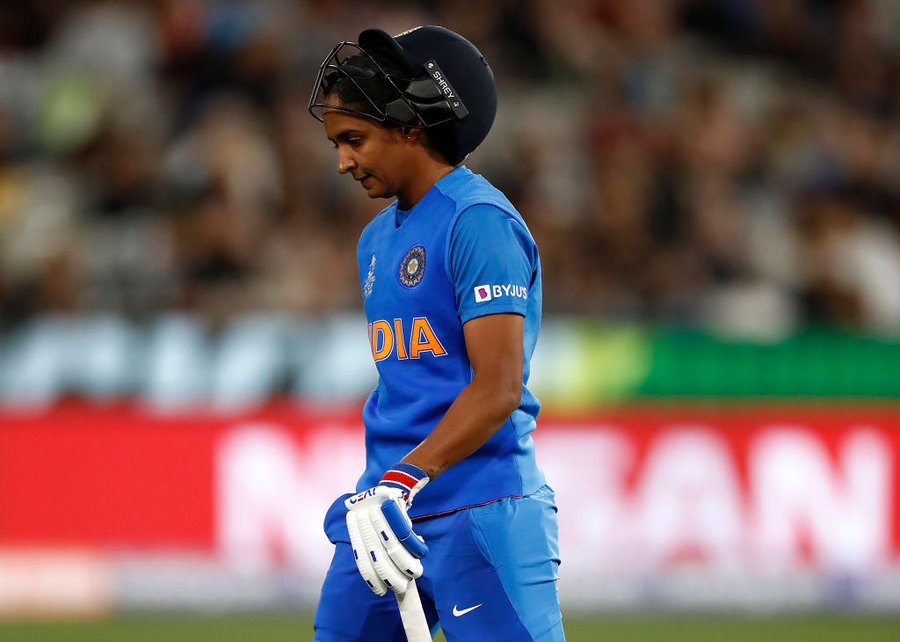India’s unhealthy inclination toward romanticising major defeats
As I watched the Ranji Trophy final slipping away from Bengal, after having reached excruciatingly close to Saurashtra’s score, something hit me. In my denial of watching Bengal lose, I heard an inner voice silently speaking, ‘For what Bengal have done so far, they’re winners’. But are they, really?

Once Shafali Verma, the prodigy, edged her fate into the hands of Alyssa Healy, it took us all back to the 2003 World Cup final wherein Sachin Tendulkar, the one that was promised, had gifted his wicket to Glenn McGrath. The rest of the game made no sense any more, as India’s fate was sealed by a stuck sense of romanticized fate.
I mean, it’s okay to lose right? After all, everyone’s a winner at the end of the day if you’ve tried hard to be where you’re standing. But, let me give you a reality check. In sport, you either win or lose. There is literally no middle ground. A fact that the Indian teams and their fans haven’t been able to even capture, forget accept. And what do anyone and everyone do immediately after a loss?
You grieve. If the laws of life mean anything in cricket, then grieving is something you simply cannot skip. Heartbreaks are and cricket is no farther from reality. We have seen that aspect quite abundantly in the way the New Zealand team and their fans lamented the 2019 World Cup final defeat. Be it Jimmy Neesham’s tweets encapsulated with anger and bargaining or the fans living in denial. After all, it was difficult for them after having tied the game and the Super Over. But what can one do to escape from reality and for how long? The grieving went on for a while before the other stages came by naturally. However, with India and its fans, it’s not been the same.
The fans are either ferocious at the loss or in complete denial of how the best team, the favourites, could ever be outplayed. And that comes from nothing else but how the teams have exhibited their behavioural qualities. Even in their grief, here’s rage, their arrogance, but more importantly, there’s romanticizing defeats in important games. It’s but an inexplicable yet unhealthy affair that refuses to leave our heart and soul and, more importantly, our brains.
After the semifinal loss, Virat Kohli complained about it and implied that they should’ve been winners because they were the top team throughout. To quote the Indian captain: “It was a game of margins and MS was run-out. 45 minutes of bad cricket puts you out of the tournament. Difficult to take it[the loss].”
But is 45 minutes really an excuse? Is any excuse really valid during knock outs? You either win the crunch situation or you don’t. Many factors of the game have been rigorously questioned, starting from rain interrupting the final part of the 1st innings to MS Dhoni’s run out. If at all, it was New Zealand batting first who had to take it up, from where they left, again in the next morning. Moreover, at the time Dhoni was run out India still needed 24 runs off remaining 9 deliveries. The match was lost long before that point.
The denial of a loss was not unfamiliar territory for Indian teams, as their disbelief was often seen after major defeats over the years. India couldn’t believe that they slipped out on the 2014 WT20 final, or the 2016 T20 World Cup semifinal and 2017 Champions Trophy final. After all, they were favourites to win and played dominantly throughout the tournament. The inner voice, at a higher volume than usual, demands - ”we’re the deserving winners”.
What went down in the 2003 World Cup final, is still justified in the mind of Indian fans as a sheer partiality of luck favouring the Aussies. Some blame Sourav Ganguly for the decision at the Toss or the umpires for giving Ricky Ponting a new life, and some just believe India had 'won hearts'. But if winning hearts was everything, then titles and trophies would've meant nothing in sport.
Now coming to the latest heartbreak, as one might call it, the Women’s T20 World Cup. After a promising and unbeaten run in the entire tournament, India were absolutely outplayed by the Aussie Women. But Harmanpreet Kaur’s words were trying to press that it wasn’t as bad, and had the ‘eight-day gap’ thing up her sleeve.
“It's part of the game, sometimes you win and sometimes you lose. You have to keep learning. [The eight-day break] Sometimes it does happen, but we spent a lot of time together which is important for us. This is part of the game, sometimes you don't get games on schedule. If we talk about the last T20 World Cup, we got to the semis, and this time to the final. I think we're on the right path,” she said post the game.
Be it 2017 or this time, when the Eves only lost by an inch, or this time when the team looked in complete withdrawal, idealizing the players who failed to perform has overpowered everything else. So much, that it has become a trend across the teams and the fans.
Every team has its own sets of problems, which if not addressed and mitigated, will always lead to them being stuck in the same old position. For New Zealand, it was the semifinal jinx and now it’s the Super Overs, for Bangladesh it’s been the lack of calculative approach, for South Africa it’s been luck and for, India, well, the story has already been told.

Comments
Sign up or log in to your account to leave comments and reactions
0 Comments